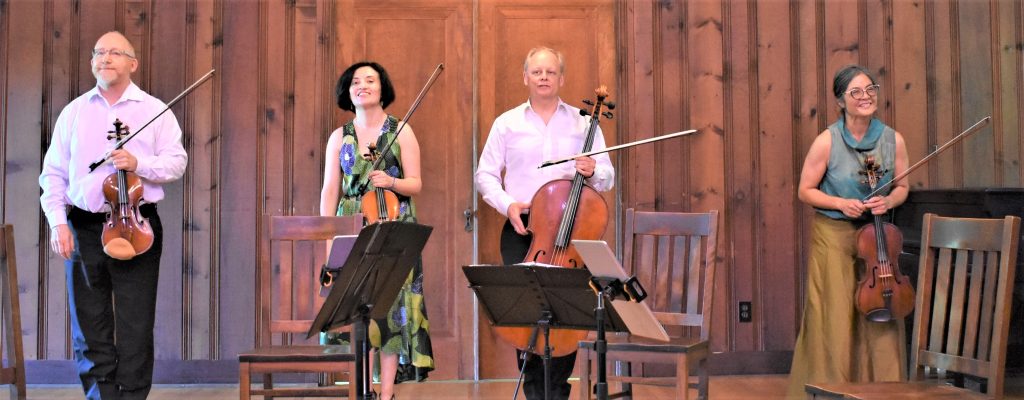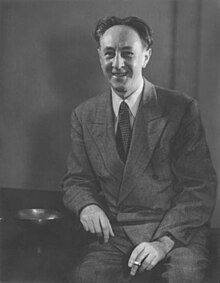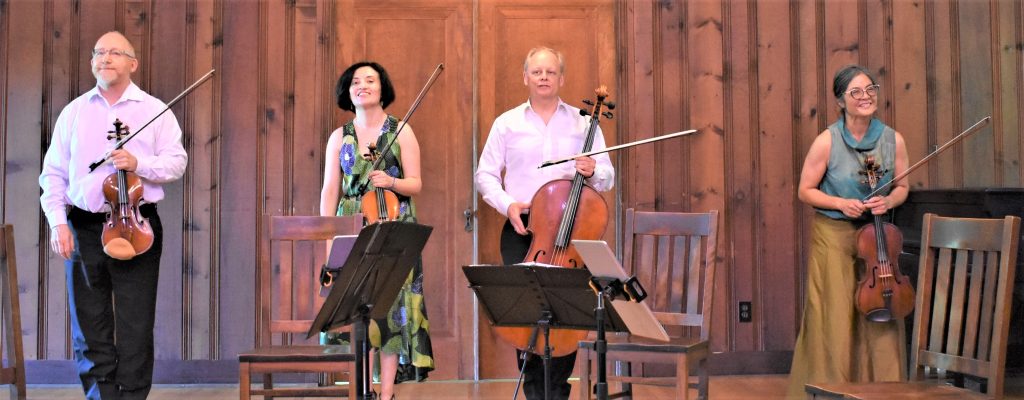
by Kevin T McEneaney
Antoinette Brim-Bell, Poet Laureate of Connecticut, began the Sunday program of Music Mountain by reading a selection of her poems. These poems featured subtle rhythmic use of assonance and alliteration as she provided perspectives on her life that echoed with larger social nuance. With calm, clear, and amusing diction she is one of the very best readers of poetry that I have ever heard. The forty-five-minute reading appeared to be half the scheduled time wherein she anecdotally offered her experiences, wisdom, and wit enhanced with a jazzy edge.

The Arianna String Quartet, the resident String Quartet at the University of Missouri (which enjoys the most sophisticated musical reputation in the Midwest) played a somewhat unusual program in the concert’s first half. (This was their 32nd continuous appearance at Music Mountain.)
They opened with String Quartet #1 in C Minor, Op. 9 (1858) by Max Bruch, written at twenty. Mendelssohn’s Op. 44 string quartets appear to have inspired him. First violinist John McGrosso opened with a striking solo melody that was arresting. The opening Andante was sweetly romantic, enhanced by the viola of Joanna Mendoza. Sudden acceleration enlivens the first movement with a deep passion for a beloved whose reply resonates with uncertainty. The following lyrical Adagio offers a varied rationale, as in a marriage proposal offered by the first violin to the second violin coyly played by Julia Sakharova. (Max did not marry until 1891 when he was 43 and singer Clara Tuczek was 26!) The subsequent Scherzo brimmed with humor as it sounded like the romantic couple was caught in a picnic downpour with Kurt Baldwin on cello delivering the shivering rumbles of the heavens. The concluding movement floated resigned resignation and nostalgia to a romance that sprouted but never flowered. Bruch’s chamber music is rarely played, and this performance offered a glimpse of his character and charm.

String Quartet #3 (1929) by Bohuslav Martinů is perhaps even more obscure, yet early compositions by Martinů are rarely played, even though he remains one of the great giants of the 20th century who composed over 400 works. The first twelve years of his life were spent living 198 steps above ground in a church steeple where his father was the church fire watchman and where he heard much organ music. In general, Martinů offers undulating stylistic patterns that recall the rolling hills of the Moravian landscape.
This early, short composition from his Paris years offers an impromptu cabaret inflection, a delightful potpourri of fractured styles that includes Czech folk melodies, jazz, and blues thrust into a cocktail blender peppered by a syncopated folk music line in the first movement, then the second movement jazzily displays two violins riffing. The second movement demands that the viola and cello employ the back of their bows to create a more mellow bluesy effect. The third movement manages to mash folk, jazz, and blues with driving rhythmic unity, which leaves the audience to ask, “What was this that I just heard?” If one were to make a short list of the top three 20th century composers, Martinů would surely be one of the top three.

String Quartet No. 2 in F major, Op. 22 (1874) by Pyotr Ilyich Tchaikovsky is not exactly obscure and remains a favorite of the most sophisticated musicians. Tchaikovsky himself declared to his brother Modest that it was his best work after he completed it, although, oddly enough, this work is not performed as often as his more popular other works.
The slow chromatic opening of the first movement is both entrancing and ambiguous in a rococo manner; one is drawn into the suspense as dissonance and tension dramatically resolve into tonal stability. McGrosso on first violin was hypnotic.
Tensions rose again in the second movement Allegro, a Scherzo, with a wandering asymmetry of mixed meters as Kurt Baldwin on cello delivered the foundation on which all players stood. In the following Andante, the viola of Joanna Mendoza shone with bright lyricism with a regular ¾ meter while harmonies plunge into deeper emotional levels. The concluding Allegro continues the ¾ meter with an extended fugue and here on second violin Julia Sakharova stood out in the thrilling finale as she vied with first violinist John McGrosso.

The audience demanded three bows and the air breathed with excited ecstasy.
Next Sunday Music Mountain features the Dior Quartet with the following program:
Kevin LAU String Quartet #3
Franz Joseph HAYDN String Quartet in C Major, Opus 74, #1
Franz SCHUBERT Quartettsatz in C Minor, D. 703
Robert PATERSON String Quartet #3
Dinuk WIJERATNE The Disappearance of Lisa Gherardini (AKA Mona Lisa)